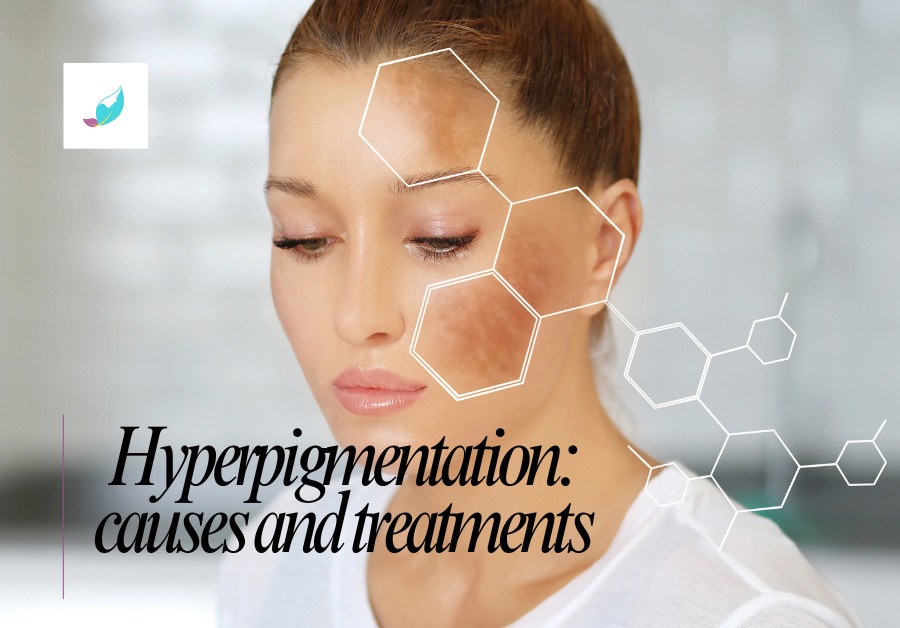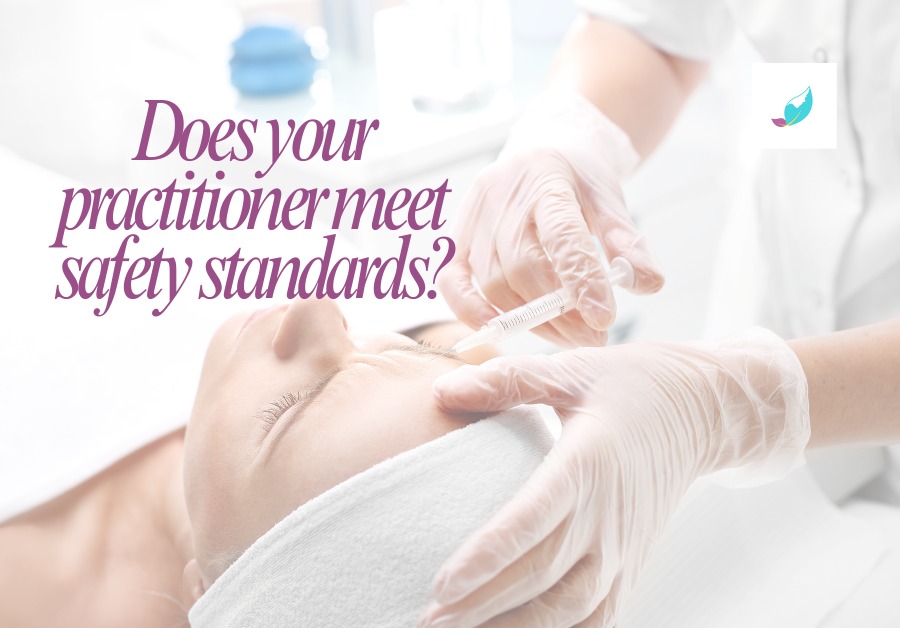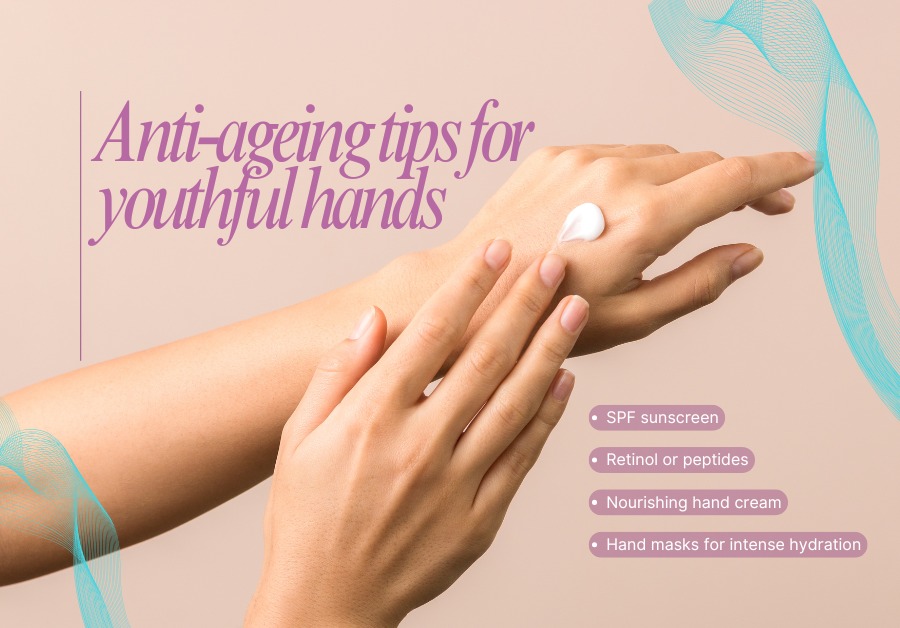What makes a good aesthetic clinic?

In 2023 in the UK, almost eight million people (around 11% of the population) had some form of aesthetic treatment in the past 12 months, while almost 14 million planned to have treatment in the next year.
With almost 1,000 practices countrywide, and a predicted value of £5.4 billion by 2026, it’s fair to say the UK aesthetics sector is booming.
Obviously that’s great for both the industry and the economy, but with so much competition, how can consumers be certain they’re getting the best care from the right people?
This blog will explore what makes a good aesthetics clinic, from the practitioners’ qualifications and the treatments offered, to whether they offer value for money and are conveniently located.
We will also detail how our SafeAP platform eliminates all that hard work, identifying safe, qualified aesthetics clinics on your doorstep.
What does an aesthetic clinic do?
There is a wide range of aesthetic treatments available, taking in everything from hair and fat removal to lip fillers, skin rejuvenation and anti-wrinkle treatment.
Laser and body contouring treatments have also become increasingly popular, helping the sector move beyond the ‘cosmetic’ label to be increasingly associated with wellness, longevity and self-confidence, particularly among Gen Z consumers.
Aesthetic medicine is a sector that is evolving at a fast pace.
The UK aesthetics industry
The aesthetics industry as we know it today is relatively young and represents the recent shift from surgical to non-surgical treatments to enhance appearance.
Those working in the aesthetics industry include regulated healthcare professionals (nurses, designated allied health professionals, dentists, doctors and pharmacists) and aesthetic practitioners, such as beauty therapists.
With that in mind the UK government has proposed a licensing scheme for aesthetic practitioners operating in England.
Knowledge and hygiene
It aims to ensure that clinics providing dermal fillers, botulinum toxin injections, intravenous treatments, laser and light procedures, chemical peels or other invasive procedures that penetrate the epidermis or beyond should:
- be suitably knowledgeable, trained and qualified
- hold appropriate indemnity cover
- operate from premises which meet the necessary standards of hygiene, infection control and cleanliness
The scheme also plans to introduce a minimum age of 18 years for people seeking the treatments covered by the licence.
Currently, anyone aged over 16 can consent to cosmetic surgery, though many aesthetic clinics either do not treat customers under the age of 18, or require parental consent.
Until the licensing scheme is in place, how can you be sure your chosen aesthetics clinic (at least in England) is up to scratch?
One way is to look for CQC registration.
The Care Quality Commission (CQC)
The Care Quality Commission is the independent regulator of health and social care in England.
Although the CQC regulates surgical cosmetic procedures, it does not regulate all non-surgical aesthetic treatment.
However, an aesthetics clinic must be CQC registered if:
- the treatment is for a diagnosable disease
- the treatment is relatively invasive, for example, threads
- if a filler is being used only to treat a disorder, injury or disease
- the treatment is hair restoration
- laser class 3b or 4 is used for disease, disorders or injury
- the treatment is an intravenous drip therapy
- surgical procedures, such as subcision, are needed
Of course, not every customer requires surgical aesthetic treatment, so let’s take a closer look at the non-surgical services many clinics and practitioners offer.
What aesthetic treatments do UK clinics offer?
In the UK, laser hair removal is the most searched-for aesthetic treatment but it is just one in a wide range of therapies and services.
Face treatments
Dermal fillers are one of the most popular treatments aimed at reducing the appearance of wrinkles and frown lines.
Many of these anti-wrinkle injections contain hyaluronic acid, a natural substance found in the body that has amazing hydrating properties.
As well as plumping out skin, dermal filler injections can also be used as a cheek filler, smooth acne scars, reduce deep nasolabial folds or soften sharp jawlines.
Lip fillers
In the same way as the hyaluronic acid in anti-wrinkle injections has a plumping effect, it is also a popular way to enhance the shape and restore the volume of lips.
These medical aesthetics treatments can also help reduce fine lines and wrinkles around the mouth area or create a more shapely Cupid's bow.
Chemical peels
These medical aesthetics treatments promote cell renewal by removing dead skin cells, improving acne scars or dermal sun damage, as well as minimising fine lines.
The varieties offered may differ from aesthetics clinic to clinic, and could include glycolic or Jessner’s solution acid peels.
Botox ®
This purified protein is arguably the most well-known of all anti-wrinkle treatments, and can be injected into the skin to help smooth out wrinkles and fine lines.
Botox ® injections can also be used in clients with medical conditions including migraines, chronic pain, excess sweating and muscle spasms.
It is important to note that according to the NHS, Botulinum toxin can only be prescribed in a face-to-face meeting by a qualified medical practitioner (doctor, dentist, pharmacist prescriber or nurse prescriber).
Consulting our SafeAP directory will ensure you find the right aesthetics clinic for this treatment.
Microdermabrasion
As the name suggests, this non-invasive medical aesthetics treatment gently buffs away dead skin cells to reveal healthy, new skin beneath, resulting in a more youthful-looking appearance.
Professional practitioners use a diamond tipped wand for the procedure, which has the added benefit of promoting natural collagen production, boosting your skin’s elasticity.
Skin tightening
This medical aesthetics treatment can rely on a variety of technologies, including lasers, ultrasound, radiofrequency or infrared light, to tighten the collagen fibres in skin.
Professionals use it around the forehead and eyes, but skin tightening is also one of the most popular body treatments.
Microblading
This popular medical aesthetics treatment is a form of tattooing. Ideal for people with thin eyebrows, a microblade tool inserts pigment into the skin that resembles eyebrow hairs.
Eyelash extensions
Another hugely popular, semi-permanent medical aesthetics treatment that can last up to three months.
Body treatments
Laser hair removal
Lots of UK aesthetic clinics offer this treatment. Suitable for all parts of the body and all skin types, it is a safe and effective way to eliminate unwanted hair.
The wide range of treatments on offer are important to consider when choosing your aesthetic clinic, but there are several other things to consider too.
Medical aesthetics prices
Not every customer has the same needs or budget. Some aesthetic clinics are specialists or provide cosmetic techniques requiring very deep pockets indeed.
Bear that in mind when searching for your aesthetic clinic, and try to avoid overpaying for a service that may be offered more reasonably elsewhere.
The price of a treatment or service isn’t the only indicator of whether the aesthetics clinic behind it offers value for money.
Pre- and post-aesthetic treatment support
Depending on the aesthetic treatment you are considering, it’s worth finding out what support a professional practitioner provides in their consultations:
- Do they require proof of age before or at the initial consultation?
- Do they ensure you have all the information to fully understand the treatment plan and techniques, including any possible side-effects?
- Is a follow-up appointment standard?
- Are the practitioner and his professional team easily accessible?
Aesthetic clinics’ locations
Every now and then a horror story hits the headlines about a patient who travelled abroad for a procedure, often carried out by an unregulated clinician, only for things to go badly wrong.
Thankfully, you don’t have to go that far for a quality service. There are hundreds of professional aesthetics clinics operating right here in the UK, but it’s also worth making sure yours is conveniently located.
Depending on your treatment plan, it may be important that you can get to and from your appointment easily and safely.
Awards, accreditations and social proof
Every aesthetic clinician will be proud of their professional expertise and service, but don’t be afraid to do your own research before you decide to book a consultation.
Verify any claims of awards or accreditations for their service, and check out the aesthetic clinics’ social media feeds, or sites such as Trustpilot.
Comments, reviews and testimonials about the clinic and its team will give you an idea of their reputation among customers who have been treated there.
Alternatively, search for them on SafeAP, our database of qualified healthcare practitioners.
Are they patient-led aesthetic clinics?
Appearances can be deceptive and the same can be true for aesthetics clinics.
A beautiful clinic exterior may look as though you can expect a friendly service, but it’s no guarantee your consultation will be patient-led.
While it’s crucial that patients looking for dermal fillers to eliminate wrinkles, non-surgical rhinoplasty or fat removal understand everything about the treatment, it’s not a one-way street.
The team at a good aesthetics clinic will also listen to what you want during each consultation. They will hear your concerns and answer all your questions completely and clearly. Aesthetic clinics that don’t should be given a wide berth.
Age limits
We have previously mentioned that many aesthetic clinics either cannot or do not offer treatments to anyone under the age of 18. Unfortunately ‘many’ does not mean ‘all’.
If, during a consultation, you discover your chosen clinic is happy to provide non-surgical aesthetic treatment to under-16s, we would encourage you to find another clinic.
The award-winning SafeAP platform can point you in the direction of hundreds of trusted, reputable aesthetic clinics throughout the UK.
About SafeAP
The Safe Aesthetic Practitioner (SafeAP), is a curated database of qualified healthcare practitioners offering non-surgical aesthetic procedures at clinics across the whole of the UK.
Co-founded by NHS medical doctors Dr. Sieuming Ng and Dr. Subha Punj, SafeAP aims to ensure safety for all, providing a platform for consumers and a portal for practitioners.
Consumers looking for good aesthetic clinics can:
- Compare ratings, review cosmetic portfolios, and explore all treatments carried out by aesthetics practitioners before booking an appointment at a clinic
- Take control of your aesthetic journey with a personalised dashboard service: keep track of all appointments and treatment development
- Use our in-app payment service to make your aesthetic journey a seamless experience
- Have immediate access to your aesthetics practitioner with SafeAp’s e-consultation service
- Use our treatment guide, podcast and blogs to stay informed of the latest cosmetic trends and developments in the aesthetics space
Owners of good aesthetic clinics benefit from:
- Targeted marketing campaigns driving new customers to your aesthetic clinic
- Professional organiser that also serves as a clinical management tool
- Portfolio to keep track of your aesthetic treatments and service offerings
- Genuine, verified reviews by new and existing patients
- Professional appointment scheduling, even across multiple clinics
- GDPR-compliant in-app messaging service
- In-app medical history and consent document tool
- Payment portal enabling invoice creation and hassle-free payment management
Next steps
For patients looking for an accredited, local aesthetics clinic offering a range of non surgical procedures, click here.
If you’re an aesthetic clinic owner looking to streamline and expand your business, sign up here.
Contact us
If you have questions about any non-surgical procedures, from fillers to microblading, or you would like to know more about our database, do get in touch.
Likewise, if you’re part of an aesthetic clinic team and want to know more, we’d be delighted to help.
To contact us, fill in this form and we will get back to you straight away.





 by
by